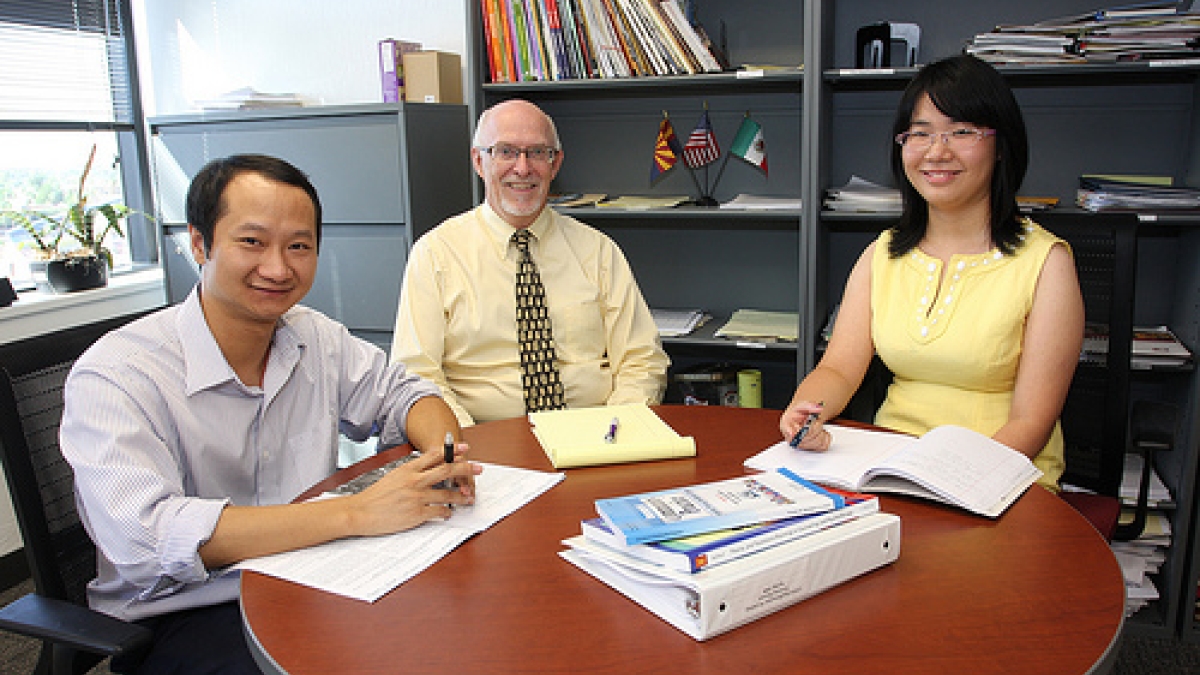ASU selected to lead China-U.S social work education collaborative

Arizona State University is one of seven universities selected to lead a national initiative to assist China in meeting an urgent goal to prepare two million new social workers by 2020.
The China Collaborative was established by the U.S. Council of Social Work Education (CSWE) to assist Chinese universities with efforts to rapidly expand the social work education and research capacity in China and build on the nation’s efforts to develop a more robust social services infrastructure.
“China has recently begun a wide-ranging campaign to develop its social services and workforce of professional social workers as a means for addressing quality of life issues for its citizens and helping marginalized populations,” said Steven Anderson, director of the School of Social Work within ASU’s College of Public Programs.
“Chinese universities have responded by rapidly developing Bachelor of Social Work (BSW) and Master of Social Work (MSW) programs,” Anderson said. “With a limited history in social work education in the country, Chinese social work educators have turned to their international colleagues for ideas and technical assistance.”
The China Collaborative is designed to foster a mutual social work academic exchange between the two countries as Chinese universities advance their efforts to develop and open new MSW programs. Anderson will co-direct the ASU initiative with Fei Sun, an assistant professor with the School of Social Work. In addition, Flavio Marsiglia, Distinguished Foundation Professor and director of ASU’s Southwest Interdisciplinary Research Center; Barbara Klimek, MSW program coordinator with ASU’s School of Social Work; and Meirong Liu of the Howard University School of Social Work in Washington, D.C., will lend their considerable expertise to the project.
Anderson, who was a Fulbright Scholar to China in 2010, said “the scope and speed of social work development under way in China is unprecedented in world history.”
“The manner in which this educational work proceeds is extremely important to the disadvantaged populations that the field of social work seeks to serve, so having the opportunity to work with our Chinese colleagues on these issues is very exciting,” Anderson said.
“We also recognize we have much to learn in this endeavor, and are confident that our experiences will help us in enriching our own program,” he added.
The CSWE will serve in a coordination and leadership role with the seven U.S. partner universities including: the University of Chicago, University of Southern California, Case Western University, Fordham University, University of Alabama, University of Houston and ASU. Each U.S. university will partner with a Chinese institution with whom to collaborate and provide developmental social work leadership broadly to the surrounding regions.
ASU is partnered with the Huazhong University of Science & Technology (HUST), which is home to more than 55,000 students, and is consistently ranked among the leading universities in China.
The project also will provide opportunities for ASU students and faculty to visit HUST and for HUST faculty and students to visit ASU to advance their mutual research agendas. ASU’s School of Social Work also will be involved with other universities located throughout central China.
HUST is located in Wuhan, a historically famous city of more than 10 million people situated near the Yangtze River. The capital of Hubei Province, Sun said Wuhan has a long history dating back to 223 A.D.
“The partnership with Huazhong University offers a great opportunity to exchange ideas regarding urban welfare problems that are common to both Phoenix and Wuhan,” said Sun, who is from China and graduated from Nanjing University.
“Both cities are seeking solutions to address the needs of large migrant worker populations and ensuring that their most vulnerable citizens have access to vital social services, such as health care and elder care.”
“This collaborative project has the potential to extend its impact to more than 80 universities in Wuhan and the surrounding area,” Sun added.